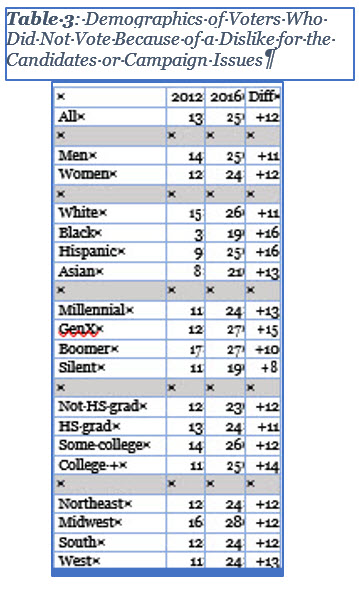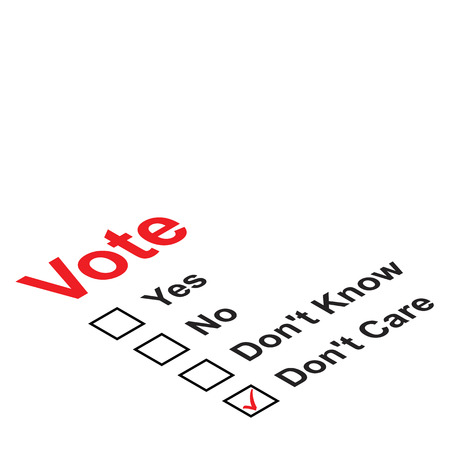Dear Patriots,
What could be more all-American than the Fourth of July? It certainly makes me proud to be an American when I see Congress mired in backdoor negotiations about the future of the healthcare. It also makes me proud that we elected a President who is functionally illiterate about most domestic and virtually all foreign policy. My chest swells with pride when I see the President of the United States playing juvenile games (Who’s Got The Tapes?), and requiring his cabinet to compliment him effusively before the press and thank him for the blessings he has bestowed upon them. I am proud that our Commander in Chief engages in what can only called be comical macho handshakes and awkward attempts at formal greetings, while not having a grasp, in spite of his small hands, on anything but the nearest woman. His small-minded, mean-spirited attacks on the press only reinforce that conclusion that Donald J. Trump is unfit to be President.
Given his obsequious behavior toward the Saudis and Israelis, his insulting behavior to the new de facto leader of the free world, Angela Merkel, and his fawning over Vladimir Putin, the President has his work cut out for him at the G20 summit in Hamburg, Germany this week. All he needs are those crowd favorites, the electric hand shock buzzer, and a Whoopee cushion or two, to win friends and influence world leaders. The election of Orange Man or the Bloviator in Chief[a],[b] (BIC, henceforth) has ushered in government by oligarchy, not for the people, but for the BIC, his family, and wealthy friends. As I predicted in my blog “Trump for President” in 2016 things could get worse and they have. Not only has the BIC failed to “Drain the Swamp” he has turned it into an open sewer.
The BIC’s recent Twitter tirade against Mika Brzezinski and Joe Scarborough is what one would expect from a sociopath and narcissist when openly criticized for his numerous blunders. While MSNBC has a moderate to liberal political slant as does CNN, it is distinctly not Presidential to react to all perceived slights with crass, venomous personal attacks. Is this really a President of whom we can all be proud?
Speaking of cable news, I was watching television a few days ago and saw an interview with Phil Donahue on the CNN show “Reliable Sources.” His interview, while typical of the Sunday morning talk shows, did give me pause to think about what Donohue was saying when asked about the Trump Presidency. His reply, Americans are hypocrites. I agree.
The Fourth of July is when the nation takes a break to celebrate our independence from colonial rule. Of course, there will be parades, political speeches, backyard cookouts, and, of course, fireworks. On the evening of the 4th I will be able to sit in my apartment and hear, not only the fireworks going off in Centennial Olympic Park, but also the sounds of gunfire a few blocks away.[c] Much will be said about being patriotic by elected officials, US flags will be displayed on block after block all across the country, hamburgers and hotdogs with be featured in backyard culinary extravaganzas, the Boston Pops will offer a rousing rendition of Tchaikovsky’s “1812 Overture” complete with howitzers and carillon, and the BIC will on Twitter setting international policy. Oh, and American hypocrisy is be on full display.
The Fourth is, for many of my generation as well as the Silent Generation, a time to reflect what it means to be an American. On this Fourth of July I will be thinking about the unnecessary loss of life in our continuing series of undeclared wars, our ethnocentric view that our system of government is the best for every country worldwide, and our continuing battle over civil rights, immigration, and healthcare. But it is also time to reflect on the what factors have allowed the accumulation of unimaginable wealth by a few at the expense of so many. My thoughts also turn to the reality that 1 and 6 Americans will be hungry tonight, as well as the 4,000 or so that will die from malnutrition this year.
How did we get to this place? We are greedy, undereducated, lazy, and hypocritical. We rally around the flag on the Fourth, but too many of us have little idea of what patriotism means. Real patriotism, not just singing “God Bless America” and reciting the “Pledge of Allegiance” means taking some small measure of responsibility, not only for the your welfare and that of your family, but your neighbor’s welfare as well. I wonder how many families have ever had a conversation around the familiar dinner table about what it means to be patriotic? I know there would be the obligatory eye-rolling and the cries of “Do we have to?” among some, but there might be lessons worth teaching.
Among the lessons worth teaching might be a review of that the Fourth of July is all about. An ABC News survey found 14% of teens surveyed marked the July 4th as the day we declared independence from France. Another 5% think that we rose up against the tyrannical war-mongering Canadians. Lest you think that is all, 15% of US teens didn’t know that the Declaration of Independence was signed on July 4, 1776, and 17% did not know that there were 13 colonies.[d]
But so what? The lack of basic knowledge and interest in our country and its government is not confined to the student population. Nowhere is such disinterest shown more dramatically than in our voting behavior. In the 2016 Presidential election 51.17% of the voting age population voted. Only in 1996 (49.1%) and 1988 (50.1%) has the voter turnout been lower. (See Figure 1.)
Given the impressively low voter turnout in the 2016 Presidential election, it is instructive to look at the turnout state by state. See Figure 2. Even in the states with the highest voter turnout, only two-thirds of the voting age population actually cast votes (Wisconsin), while in the worst state for voter turnout (Hawaii) only one third of the voting-age population voted. In an election as bitterly fought as our last one, it is beyond my comprehension how anyone would forego the opportunity to express their preference.
But so what if only about half of the voting age population in the US voted? Is that so bad? What about other developed countries around the world? The US ranks 27/34 democratic countries (members of the Organization for Economic Cooperation and Development) in voter turnout according to a Pew Research survey conducted in 2017 (See Table 2).[e] How can we account for the significant turnout differences among the countries surveyed? Some of the variation is, no doubt, due to compulsory voting laws in some countries. Australia,  Belgium, Greece, Mexico, and one Swiss canton have compulsory voting, but in practice it is not enforced. Nonetheless compulsory voting can have dramatic impacts on turnout. In Chile, for example, turnout plunged in 2012 after the country moved from compulsory to voluntary voting and began automatically enrolling eligible citizens. Essentially all voting-age citizens were registered for Chile’s 2013 elections, but the turnout in the presidential race plunged to 42%, versus 87% in 2010 when the compulsory voting law was in place. To even consider the possibility of compulsory voting in the US is unthinkable. Imagine the government telling real Americans that you are required to vote.
Belgium, Greece, Mexico, and one Swiss canton have compulsory voting, but in practice it is not enforced. Nonetheless compulsory voting can have dramatic impacts on turnout. In Chile, for example, turnout plunged in 2012 after the country moved from compulsory to voluntary voting and began automatically enrolling eligible citizens. Essentially all voting-age citizens were registered for Chile’s 2013 elections, but the turnout in the presidential race plunged to 42%, versus 87% in 2010 when the compulsory voting law was in place. To even consider the possibility of compulsory voting in the US is unthinkable. Imagine the government telling real Americans that you are required to vote.
In those countries without compulsory voting, governments often take the lead in registering people to vote. In Germany and Sweden people are automatically registered once they become eligible, while in the UK and Australia eligible voters are individually sought out and registered.
In the US voter registration is the responsibility of the individual and as a result registered voters constitute a smaller proportion of potential voters than in any other OECD country. Registering to vote is the duty of each citizen, but it is made more difficult by politicians who, over the decades, have created poll taxes, pseudo literacy exams, gerrymandered voting districts, sex economic and discrimination, and now claiming that voter fraud is rampant.
Tens of millions US voters did not vote in the 2016 Presidential elections and in a study conducted by the Pew Research Center[f] the primary reason was a dislike for both candidates. While “too busy to vote” and feeling that “my vote would not count” each accounted for about 15% of those not voting. See Figure 3.
In the same study, a more fine grained analysis revealed other interesting features of the election. Those that expressed dissatisfaction with the candidates or campaign issues constitute an interesting group as one can see in Table 3.  The 2016 Presidential election was characterized by the lack of ethnic diversity as Blacks and Hispanic voting decreased dramatically from 2012 to 2016. There was a 16% increase in Black and Hispanics who did not vote because of dissatisfaction with the candidates or campaign issues. GenXers and Millennials also attributed their lack of voting to disinterest in the candidates in 2016 when compared to 2012. Finally, college-educated were increasingly turned off by the candidates than in the previous Presidential election (11% vs. 25%).
The 2016 Presidential election was characterized by the lack of ethnic diversity as Blacks and Hispanic voting decreased dramatically from 2012 to 2016. There was a 16% increase in Black and Hispanics who did not vote because of dissatisfaction with the candidates or campaign issues. GenXers and Millennials also attributed their lack of voting to disinterest in the candidates in 2016 when compared to 2012. Finally, college-educated were increasingly turned off by the candidates than in the previous Presidential election (11% vs. 25%).
So what is the point? Given the construction of our political system we are presented with only two candidates, representatives of their respective parties, for President. While third party candidates are recognized, the deck is loaded in such a way that the best they can hope for is a spoiler role. Even if successful in a Presidential election, it is highly unlikely that representatives of a third party could win a seat in Congress and without support in Congress the outcome is obvious.
The 2016 election was plagued, not by voter fraud, but by a conscious choice on the part of voting-age population not to vote. Both candidates carried significant baggage with them into the campaign, but for many a vote for Clinton was a vote for more of the same, while a vote for Trump was fraught with risk and uncertainty. Nonetheless , Trump represented a change and that was a more palatable choice for millions. A significant number of others were dissatisfied with the choices and simply didn’t vote. Not voting because you don’t like the issues or the candidates is a cop out. By not voting not only do you abdicate your right to criticize the candidate that is elected, but you still have to live in a country run by a candidate you didn’t like. A more patriotic view would suggest that even though you don’t like the candidates it is possible to make a choice on which one would do the least harm to the US at home and abroad.
To the point of this blog. For a part of one day during the year many will think about what it means to be an American. For many others it will be a day of drinking beer, lounging by the pool, watching a parade on television, and a few fireworks. For a fleeting moment, most will feel a small twinge of patriotism, but don’t worry, it will be forgotten by the time we go to bed on the night of the Fourth.
True patriotism does not mean a profusion of little American flags stuck in your lawn, the size of the American flag an automobile dealership, nor an NRA sticker on the bumper of your pickup. Patriotism means accepting some responsibility for the state of the US. Patriotism means voting, even if it means considering the welfare of others, and not just yourself. Patriotism means appreciating that you are living in a political experiment that has never been historically replicated, and one that can fail.
H.L. Mencken once said, “On some great and glorious day the plain folks of the land will reach their heart’s desire at last, and the White House will be adorned by a downright moron.” That’s what the last Presidential election gave us.
[a] Bloviator definitions:
- A public figure, such as a politician or an actor, who makes outlandish, strident statements on issues, thinking that the average man will care about their opinions.
- Someone who pontificates about issues of which they are uninformed, yet pretend to be expert.
- Pompous blowhard, using their celebrity to speak about topics on which they are totally unqualified.
http://www.urbandictionary.com/define.php?term=bloviator
[b] Thanks to James C. Cobb, B. Phinizy Spalding Professor of History Emeritus, University of Georgia, for the concept of the Presidential Bloviator.
[c] Among some of my neighbors in midtown Atlanta engage in a rather risky practice of discharging firearms not only as a way to settle petty differences, but as a celebratory display. Of course, the mental midgets that fire their guns into the air fail to consider basic physics and indeed people have been wounded by stray bullets. Unfortunately, the stray bullets seem to inevitably hit innocent bystanders and not the revelers.
[d] http://abcnews.go.com/US/story?id=92955&page=1
[e] http://www.pewresearch.org/fact-tank/2017/05/15/u-s-voter-turnout-trails-most-developed-countries/#data
[f] http://www.pewresearch.org/fact-tank/2017/06/01/dislike-of-candidates-or-campaign-issues-was-most-common-reason-for-not-voting-in-2016/
EO Smith
Latest posts by EO Smith (see all)
- Patriotism - 4 July, 2017
- The Super Sucker Bowl - 10 February, 2017
- Alternative Facts and Science - 24 January, 2017


